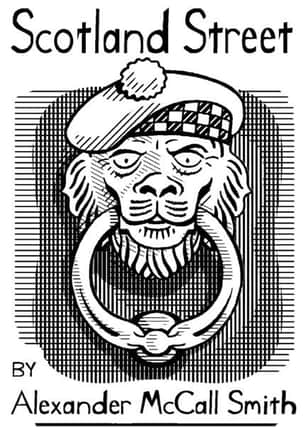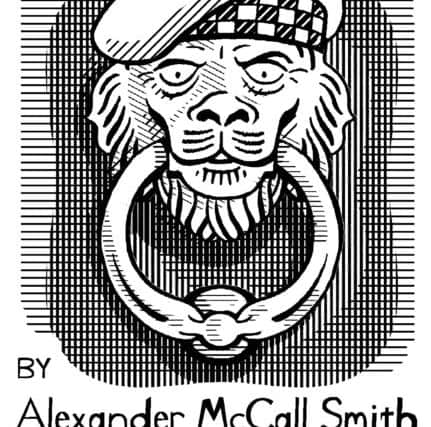Scotland Street: Unsettling thoughts


Identity was a complex matter, but one thing was clear: in Scotland you did not automatically change your name to that of your husband, and there was certainly no legal requirement to that effect.
Domenica had been happy enough to be married, but did not feel that it was the defining feature of her life. Angus was her second husband. Her first, whom she had met and married in South India, had been a mild and rather unmemorable man, a member of a family who owned what they referred to as an electricity factory outside Cochin. This business, a small coal-fired generating station, had been her husband’s pride and joy, but it had also been the cause of his death – by electrocution. Widowhood had saved her from a restrictive marriage.
Advertisement
Hide AdAdvertisement
Hide AdShe had loved her first husband – vaguely – but she had not been in love with him. There was a distinction, she felt, between the state of loving another and being in love. The latter involved a surrender to a state of incompleteness: the object of your love was necessary for your continued existence – or so you thought. Loving another was wanting to own that person – to have him or her as completely as possible. You appended the other to your life – you incorporated him within your immediate, personal world.


As an anthropologist, she had spent her entire professional life trying to understand people, how they behaved, and why they did what they did. The scientific study of human society answered some of those questions, but said nothing at all about why we liked the things we did. So an anthropologist might work out how people organised their private lives, might throw light on patterns of courtship and marriage – which were matters of love, after all – but might have nothing to say about the thing that was at the core of all that – about the mystery of love. Nor did psychology throw much light on what made people experience love for another. The psychologist might understand the place of love in the pantheon of emotions, but may say nothing about what it actually was. It was the same with consciousness: we understood how consciousness might come into existence – neuroscience claimed even to have pinpointed the region of the brain that appeared to weld mental activity into an awareness of self – but an understanding of the fundamental notion of consciousness continued to evade philosophers. Love was like that: it happened, and it made a big difference, but what it actually was, what its wellsprings were, was a question that philosophers had yet to answer.
Domenica was not sure whether she loved Angus. She was fond of him, of course, but fondness was not the same thing as love. Fondness never set the pulse racing; fondness never made you ache inside, hopelessly, sometimes deliriously, as love so effortlessly did. Yet if anybody were to ask her “Do you love your husband?” she would have replied, without hesitation, “Of course I do.” And that, more or less, was what she had publicly professed on that rather fraught day when she had stood with Angus in St Mary’s Episcopal Cathedral and exchanged vows. She had promised to love him, because the wording of the 1929 marriage service had been explicit on that point. But how could one promise to love somebody? You might promise to treat him lovingly, which is something that anybody should be capable of, but you could not promise that the bird of love, that shy, elusive creature, would alight on your particular bough.
And so far, she felt that she had kept her promise, and she thought he had too. They had treated one another with kindness and consideration. They had exchanged few angry words, and when they had, they had immediately regretted them. They made one another breakfast turn and turn about; they ironed each other’s clothes; they bought small presents that they presented to one another at odd times. She was contented, but could she say that she loved him? Possibly – as long as love was defined broadly enough, to include the comfortable friendship that comes with being in another’s company over time.
She looked across the kitchen in Scotland Street. Angus was sitting on a rickety chair – one that had belonged to Domenica’s grandmother and had been taken from that distant croft on North Uist when she had died. In Domenica’s eyes, the chair was a link with that old Scottish past that seemed to be vanishing so quickly; an object that should have been in a museum somewhere but was, instead, here in her house.


How unnoticed, and how speedily, might a whole culture slip away from a people … The Gaelic voices of Domenica’s youth had largely disappeared, those liquid vowels, that soft and entrancing language that could sound like the falling of rain; that had become almost rare, and been replaced by the very different tones of incomers, the flattened vowels of Yorkshire, the chirpy, half-swallowed patois of London. And with the withering of language had gone the stories and the attitudes, the unspoken understandings, the subtle references that had made up the distinctive life of Scotland.
That might go slowly, its passage almost unnoticed, until suddenly you were reminded that the person to whom you were talking did not know what you meant.
Advertisement
Hide AdAdvertisement
Hide AdShe smiled; she was remembering what had happened a few days ago when she had wanted to go to a concert at the Canongate Kirk and had telephoned to book a taxi to collect her. “I’d like to go to the Canongate Kirk,” she had said. The voice at the end of the line had hesitated, and then said, “Is that a restaurant?”
Domenica had laughed – but it was a laugh that concealed a sudden twinge of despair. A voice on the telephone – a local voice – did not know the word kirk (anglice church) which was one of the very commonest Scots words.
She looked at Angus. An important part of love was the sharing of some valued possession – a tune (Listen, they’re playing our tune!); children, perhaps; a fund of stories; a country ... They had all of that, she thought, but still … but now it came to her, that awful unsettling question. Did she want to stay with Angus for the rest of her life? If she did, then she knew that this would preclude any passionate involvement. Angus represented friendship and companionship, but was that all that she wanted?
She gasped with shock at her own disloyalty. Angus looked up. He thought she had sneezed. “Bless you,” he muttered.
She looked away, ashamed and perturbed in equal measure.